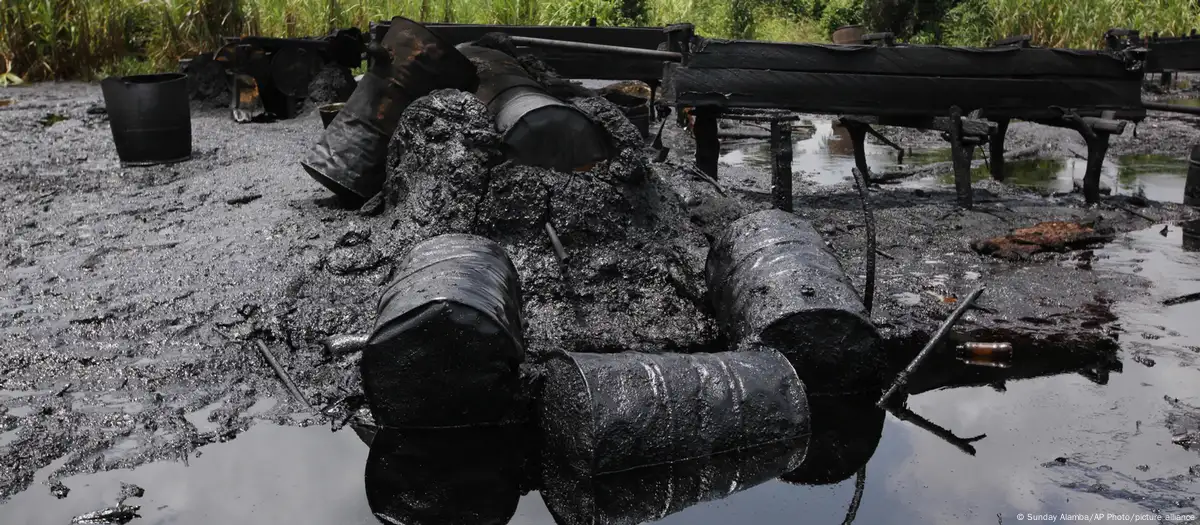Nigeria’s military and security forces have struck a significant blow against the illegal oil trade, dismantling 56 illegal bunkering sites and recovering millions of liters of stolen crude oil. This decisive action aims to curb an illicit economy that has long plagued Africa’s largest oil producer. Yet, critical questions remain: Can this bold crackdown end economic sabotage, or are deeper systemic reforms required?
Despite its status as Africa’s leading crude oil producer, Nigeria’s oil sector has suffered from rampant theft and pipeline sabotage. These challenges have severely curtailed production, diminished exports, and strained government revenues. President Bola Tinubu’s administration now faces the daunting task of addressing these longstanding issues to restore stability and growth to the sector.
The recent operation by Nigeria’s military, in collaboration with other security agencies, resulted in the seizure of 1.2 million liters (317,000 gallons) of stolen crude oil and the destruction of 15 illegal refining sites in Bayelsa State’s Okorodia forest. Authorities also confiscated 88 cooking drums and arrested 17 suspects linked to the illegal operations. Vehicles and refining equipment used in the illicit trade were impounded.
These actions highlight the scale of Nigeria’s oil theft crisis. Between 2009 and 2020, the country lost approximately 620 million barrels of crude oil valued at $46 billion, according to the Nigerian Extractive Industries Transparency Initiative. Such losses represent a substantial blow to the nation’s economy and underscore the urgency of tackling oil-related crimes.
Oil theft in Nigeria is not a new phenomenon, but its sophistication has evolved. The Niger Delta, rich in oil reserves, remains the epicenter of these activities. Experts argue that addressing the social and economic disparities in the region is key to curbing the illegal trade.
“Residents in the oil-producing areas have been neglected for decades,” said Umaru Ahmadu, a financial consultant specializing in oil and gas. “They lack infrastructure, social support, and viable livelihoods. Their environment has been devastated by oil extraction, leaving them with little choice but to resort to self-help through illegal refining or theft.”
Ahmadu emphasized that the government must prioritize community welfare. “If the state continues to exploit resources without addressing local grievances, the propensity for sabotage will persist,” he added. Building trust through tangible investments in the Niger Delta could be a cornerstone of any lasting solution.
The fight against oil theft also requires strong political will and accountability. Benjamin Boakye, Executive Director at the Africa Centre for Energy Policy, underscored the complicity of some politicians and security officials in the illegal trade.
“The same individuals tasked with enforcing the law and protecting the environment are often part of the problem,” Boakye observed. “Without accountability and transparency, these efforts will fall short.”
Boakye called for a robust framework to hold officials accountable, ensuring they prioritize protecting state resources and the environment over personal gain.
The environmental toll of oil theft is profound. Illegal refining contaminates air, water, and soil, endangering the health and livelihoods of local communities. Fires and spills from crude methods exacerbate the damage, leaving lasting scars on the ecosystem.
Ahmadu noted that illegal refiners lack the expertise to minimize environmental harm. “Their operations are crude and dangerous, often leading to fire outbreaks and widespread pollution,” he said. The cumulative impact threatens not only local communities but also the broader environment and economy.













Leave a comment